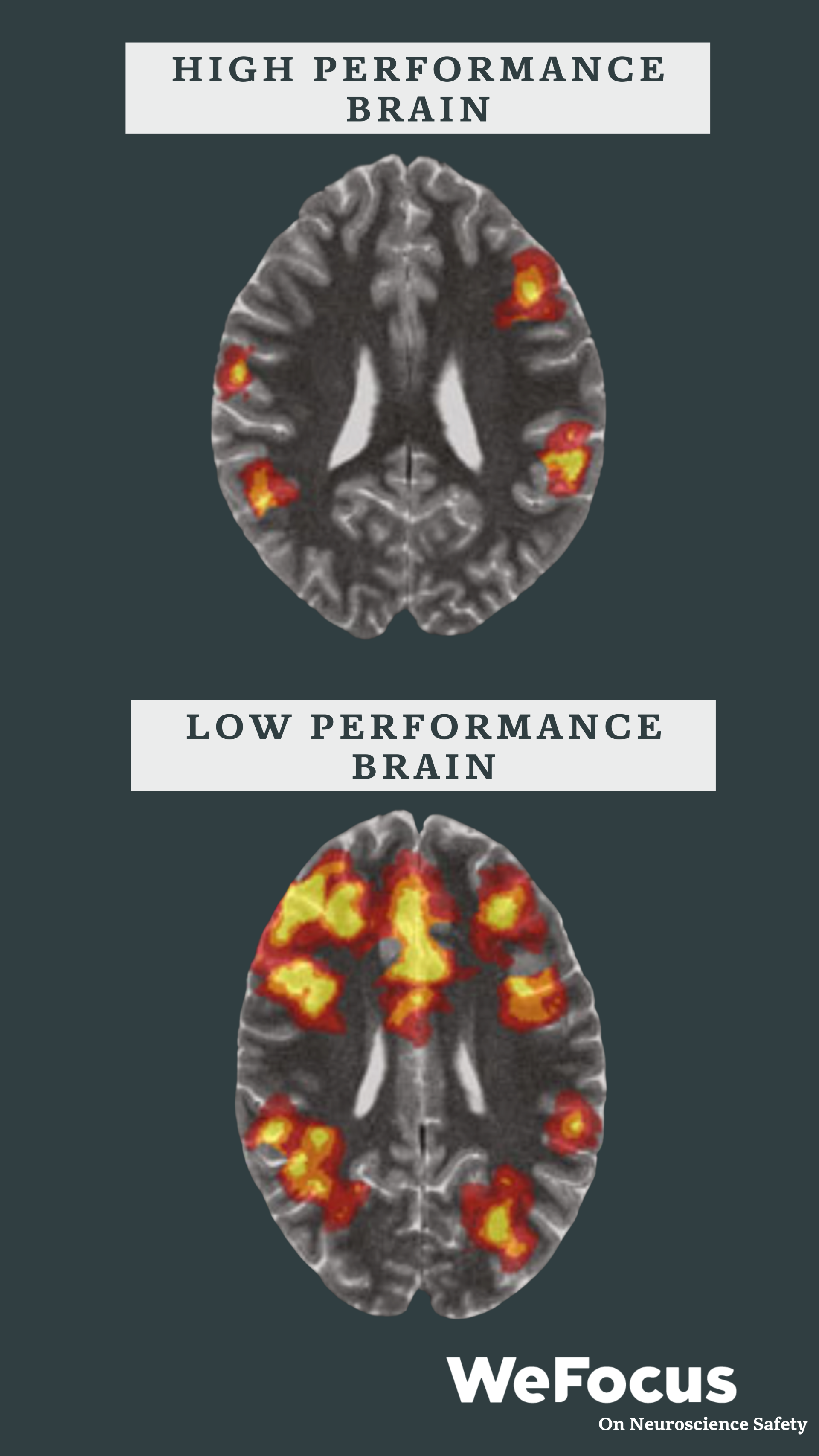Just because you go home with all your arms and legs, and therefore are physically safe, it doesn’t mean that you feel safe speaking up, when it is necessary, to enforce a STOP in production to keep yourself and your colleagues safe thus making you feel emotionally unsafe.
The amount of energy we use when we feel unsafe is tremendous compared to when we are on top of the situation. And this amount of energy can turn our brain from high to low performance.

The image shows a study on high performance brains vs low performance brains where both brains were exposed to the same demanding task. The yellow/red areas show the amount of activity in the brain.
As can be seen on the picture, when under pressure, the high performance brain tends to stay cool, whereas the low performance brain on the contrary is using a much higher percentage of the brain to solve the task, and thereby using a lot more energy.
The high performance brain was then able to stay cool, use less energy that could be saved for other purposes and keep an overview of the given situation.

Both of these 2 brains, and the person belonging to the brain, could potentially go home equally safe on any given day. The difference is, however, that the high performance brain would experience a surplus of energy when returning home to family and friends. The high performance brain therefore also has the benefit of truly being able to be present at home and to recharge for the following day.
On the other hand, the low performance brain, that also ended the working day safely, will have no energy left when going home and could potentially indulge itself in a load of negative self-talk. As this brain is not present it will get much less rest, potentially sleep poorly and will have less energy for the following day. All starting a negative spiral that could result in that this brain might not physically go home safely one day.
As an HSE professional you have an opportunity to fix this with easy initiatives that can be dovetailed straight into your already existing policies and procedures, creating significant cost savings, sending more people home safely and delivering profound appreciation of your great HSE work.
Since we can’t use System 2 all the time, and since System 1 apparently can’t always stop our brain from e.g. negative self talk, then how do we avoid this self talk? The answer is simple: by taking breaks. We simply need to apply the BRAIN BREAKS. We need to train our brain to be able to use the top down part, System 2, to say “Hey! I’m pretty good at my job, and I have done a great job today!” Because when we succeed in that we’ll be better at resting and spending quality time with our family and friends. This will then lead to an upward-going spiral of motivation and a higher drive toward making safe decisions. This will, moreover, allow us to ask colleges to apply the break, so that they as well can make better and safer decisions.



